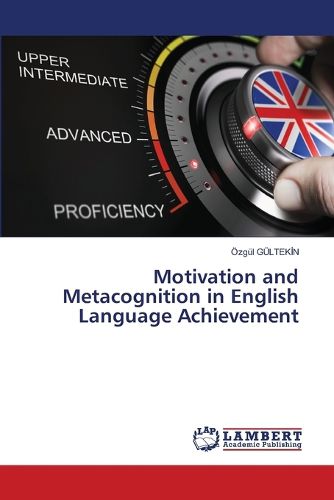Readings Newsletter
Become a Readings Member to make your shopping experience even easier.
Sign in or sign up for free!
You’re not far away from qualifying for FREE standard shipping within Australia
You’ve qualified for FREE standard shipping within Australia
The cart is loading…






This study investigates the relationship between motivation, metacognition, and academic achievement in English as a Foreign Language (EFL) learners in higher education. It aims to understand how these factors interact and contribute to language learning success. The research employs a quantitative approach, utilizing the Motivation/Attitudes Questionnaire (MAQ), Metacognitive Awareness Inventory (MAI), and academic performance records. The findings reveal that students exhibit high levels of general language learning motivation, with instrumental motivation being higher than integrative motivation. A significant positive correlation exists between motivation and metacognitive awareness, indicating that motivated students employ metacognitive strategies more effectively, enhancing their learning outcomes. Pedagogically, the study suggests that English instructors should focus on fostering both types of motivation and integrating metacognitive strategy training into their teaching practices. This approach helps students become self-regulated learners, capable of planning, monitoring, and evaluating their learning processes.
$9.00 standard shipping within Australia
FREE standard shipping within Australia for orders over $100.00
Express & International shipping calculated at checkout
This study investigates the relationship between motivation, metacognition, and academic achievement in English as a Foreign Language (EFL) learners in higher education. It aims to understand how these factors interact and contribute to language learning success. The research employs a quantitative approach, utilizing the Motivation/Attitudes Questionnaire (MAQ), Metacognitive Awareness Inventory (MAI), and academic performance records. The findings reveal that students exhibit high levels of general language learning motivation, with instrumental motivation being higher than integrative motivation. A significant positive correlation exists between motivation and metacognitive awareness, indicating that motivated students employ metacognitive strategies more effectively, enhancing their learning outcomes. Pedagogically, the study suggests that English instructors should focus on fostering both types of motivation and integrating metacognitive strategy training into their teaching practices. This approach helps students become self-regulated learners, capable of planning, monitoring, and evaluating their learning processes.